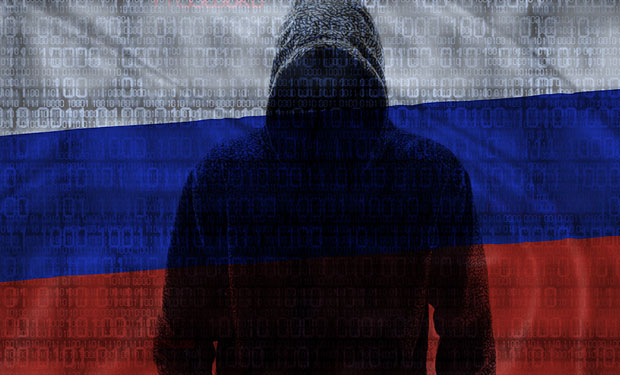by Eddy Elfenbein, Crossing Wall Street
Yesterday, the FBI arrested a Russian businessman named Evgeny Buryakov and charged him with being an agent of Russian intelligence.
Buryakov was in the U.S. on “non-official status,” meaning he didn’t have diplomatic immunity, while his two co-conspirators (Igor Sporyshev and Victor Podobnyy) had official status but they had already split back to Mother Russia.
Reading the details of their story, it’s pretty embarrassing. These guys come across more like Boris Badenov rather than international men of mystery. The spies are on the phone complaining about their jobs.
While it’s easy to dismiss these buffoons as merely buffoons, noted strategy analyst John Schindler cautions that there’s something more sinister afoot. Bear in mind that Vladimir Putin is a former KGB officer and that he takes spy warfare seriously. Putin believes Russia is in a Holy War with the west, the U.S. especially, and he intends to win.
Schindler notes that the important part of the story, the part that we ought to be paying attention to, is that the spies were targeting the U.S. financial infrastructure. They were looking for information on topics like high-frequency trading and automated trading algorithms. Basically, anything that could be used to destabilize our financial markets.
As with the Illegals Network in 2010, journalists and commentators who are ignorant of Russian espionage tradecraft are blowing this story off as being of little consequence, even comedic. There is, however, nothing funny about this case. In the first place, it shows that the Kremlin continues to collect economic intelligence in the West, using various covers to steal information of many sorts. This is a big win for the FBI and U.S. counterintelligence, but luck was on our side here, and that cannot be counted on.
Moreover, Illegals have many purposes, including functioning as long-term sources to maintain agent networks in the event of war, when diplomatic facilities close and Legals get pulled home. Given the parlous state of relations between the West and Russia now, this is not a theoretical concern. The Kremlin, unlike most Western intelligence services, tends towards the long-view and worst-case planning with utmost seriousness.
Most individual investors are unaware of how much modern trading is dominated by machines. These are highly sophisticated operations. Whenever you buy a stock, it’s very likely you’re buying it from a machine. Whenever you sell a stock, it’s very likely a machine bought it from you. There’s a vast army of computers that do nothing all day but trade at insanely high speeds to eek out a micro-penny’s profit on each trade. The worry is that once one robot starts selling massively, it could trigger all the other robots to sell as well.
Could this really happen? I don’t know, but we’ve had Flash Crashes before. It’s realistic enough that the Russians were looking into it. The trio was especially interested in ETFs (exchange traded funds). On the other hand, rather than them attacking us, they have been interested in finding out if we had been attacking them.
The irony here is that it’s been the Russian system that’s been destabilized. The Russian economy has been clobbered by the recent fall in oil. The ruble has been smashed and the Russian Fed has responded by jacking up interest rates. As I’ve noted before, the Russian ETF ($RSX) is in a severe bear market. Capital outflows ballooned from $60 billion in 2013 to $150 billion last year.
It may soon get worse for Russia. Yesterday, S&P cut Russia’s bond rating to junk (and someone may have known). The U.S. wants to kick Russia out of the SWIFT banking network. This is the standardized network that lets banks conduct international transactions. This is a big deal as it would isolate the Russian economy even more. Dmitry Medvedev said that Russia’s reaction would be “unlimited.” The fear is that with a busted up financial system, the Russian Fed won’t be able to conduct monetary policy.
In 2009, a computer programmer (and Russian immigrant) named Sergey Aleynikov was arrested and accused of improperly copying computer codes that could be used to destabilize the markets. This was the inspiration for Michael Lewis’s “Flash Boys.” After years of legal battles, Aleynikov’s case was ultimately thrown out, although his life was nearly ruined.
This is a secret world of spycraft and high finance. We may never know exactly what’s going on. In the meantime, it’s best to remember those haunting words by T.S. Eliot, himself a Lloyd’s Bank employee:
Between the order
And the confirmation
Between the bid
And the ask
Falls the shadow.
Copyright © Crossing Wall Street














